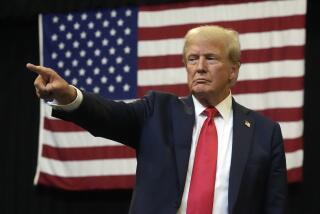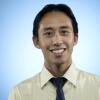Healthcare Issues Are Discussed at Hearing
“What I want from this meeting is for Congress to do their job, and fix the healthcare system.”
Speaking through a Korean translator, Lee Young Hoon, 76, vented frustrations shared by many of the 500 attendees at the Los Angeles Convention Center on Saturday. They came for a congressionally sponsored public hearing designed to get citizens’ views on healthcare reform.
Some, like Lee, did not hold back. Neither did Los Angeles Mayor Antonio Villaraigosa, who welcomed the participants.
The mayor, who some consider a possible candidate for higher office in the future, said that the federal government had failed to come up with solutions to the plight of the 46 million Americans who lack health insurance.
“If you’re a Democrat or Republican running for president ... and you have not articulated a vision for America that says every American should have healthcare, I would submit to you, you’re not going to be the next president,” Villaraigosa said to applause.
The hearing was organized by the Citizens’ Health Care Working Group, a nonpartisan commission created by Congress to seek input on improving the healthcare system. The issue of major reform has lain relatively dormant for some time -- since the Clinton administration’s plan imploded in the 1990s -- but now is gaining political traction.
The commission, including the secretary of Health and Human Services and 14 others, has met in eight other cities for public input and plans to meet in about 20 more. It will submit recommendations to Congress and President Bush in September.
“The point is to bring voices that are underrepresented -- which are the citizens’ -- to the debate on healthcare policy,” said Therese Hughes, a Los Angeles-area commission member.
The commission has identified key problems: soaring healthcare costs, high rates of medical error, and lack of access to needed care.
The daylong event used computers and instant polling to gauge public sentiment. Attendees were split into groups of about 10 at round tables, where they discussed the kinds of healthcare services that should be provided and how they should be funded. After a brief debate, a volunteer at each table typed suggestions into laptops.
Separately, attendees would take instant polls on questions by punching in their choices on wireless hand-held devices. Among the questions was: “Should it be public policy that all Americans have affordable healthcare coverage?” Ninety-five percent said yes.
But disagreements arose on who should pay what for coverage. A bare majority, 51%, said wealthier people should pay more for health insurance, while 11% said sicker people should pay more. Twenty percent said everyone should pay the same.
Many said they came to the event because they were frustrated or concerned about people who struggled with the healthcare system.
Karon Wright, a self-employed Thousand Oaks resident, said her monthly healthcare costs have climbed from $300 to $1,600 since her husband, Geoff Glassner, 62, retired. He was an information technology project manager at a leading health insurance company.
“I want to have a voice in what happens to healthcare in this country,” Wright said.
Rudy Gonzalez, 49, a pastor of a Moreno Valley church, said the government should bear a greater financial responsibility for healthcare.
“We need to communicate back to our government that we’re a Christian country, and we have Christian values,” he said. That means caring for the needs of the chronically ill and helping average citizens to afford insurance, he added.
Others were skeptical that Congress was ready to make the sweeping changes necessary.
“When Medicare and Medicaid were created, that was revolutionary,” said Gloria Rodriguez, who heads a Los Angeles-based association of free and community clinics. “It will take that kind of radical thinking and action” to make healthcare work better, she said.
More to Read
Get the L.A. Times Politics newsletter
Deeply reported insights into legislation, politics and policy from Sacramento, Washington and beyond. In your inbox three times per week.
You may occasionally receive promotional content from the Los Angeles Times.









